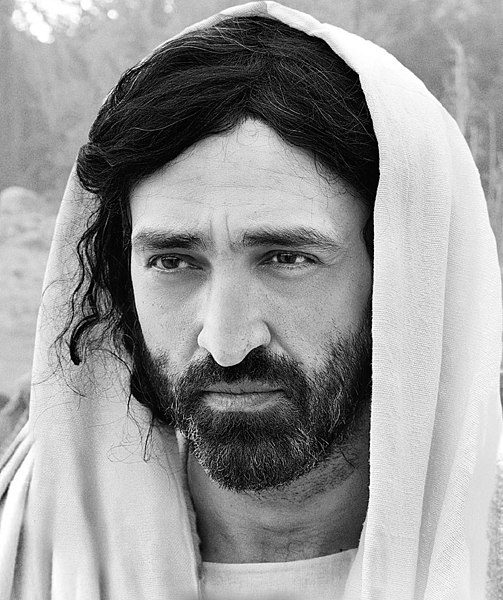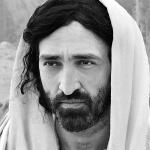
Michael J. Alter is the author of the copiously researched, 913-page volume, The Resurrection: a Critical Inquiry (2015). I initially offered 59 “brief” replies to as many alleged New Testament contradictions (March 2021). We later engaged in amiable correspondence and decided to enter into a major ongoing dialogue about his book. He graciously sent me a PDF file of it, free of charge, for my review, and has committed himself to counter-response as well: a very rare trait these days. All of this is, I think, mightily impressive.
Mike describes himself as “of the Jewish faith” but is quick to point out that labels are often “misleading” and “divisive” (I agree to a large extent). He continues to be influenced by, for example, “Reformed, Conservative, Orthodox, and Chabad” variants of Judaism and learns “from those of other faiths, the secular, the non-theists, etc.” Fair enough. I have a great many influences, too, am very ecumenical, and am a great admirer of Judaism, as I told Michael in a combox comment on my blog.
He says his book “can be described as Jewish apologetics” and one that provides reasons for “why members of the Jewish community should not convert to Christianity.” I will be writing many critiques of the book and we’ll be engaging in ongoing discussion for likely a long time. I’m quite excited about it and eagerly enjoy the dialogue and debate. This is a rare opportunity these days and I am most grateful for Mike’s willingness to interact, minus any personal hostility.
I use RSV for all Bible verses that I cite. His words will be in blue.
*****
Alter wrote:
CONTRADICTION #35 Luke Contradicts Mark and Matthew
Luke contradicts Mark and Matthew regarding who in the Sanhedrin condemned and did not condemn Jesus. Mark 14:53 states that Jesus was brought before the high priest and all the chief priests and the elders and the scribes after his arrest. Later, Mark 14:64 reports: “And they all condemned him to be guilty of death.” Finally, in Mark 15:1 there is the added information that “in the morning the chief priests held a consultation with the elders and scribes and the whole council, and bound Jesus, and carried him away, and delivered him to Pilate.” Therefore, Mark went out of his way to emphasize that all members of the council, including Joseph, condemned Jesus and that the whole council delivered him to Pilate. . . .
Twice Matthew reports in his narrative that the council planned and participated in the actions against Jesus:
Mt 26:59 Now the chief priests, and elders, and all the council, sought false witness against Jesus, to put him to death.
Mt 27:1 When the morning was come, all the chief priests and elders of the people took counsel against Jesus to put him to death
Therefore, Matthew substantiates Mark’s narrative that all members of the Sanhedrin participated in the condemnation of Jesus.
Luke 23:50 reports that Joseph of Arimathea too is described as a bouleutēs or a counsellor (AV). Gigot (1910), writing in The Catholic Encyclopedia, elaborates: “He is also called by St. Mark and by St. Luke a bouleutēs, literally, ‘a senator’, whereby is meant a member of the Sanhedrin or supreme council of the Jews.” Similarly, Brown (1994a, 2:1227) states: “While preserving Mark’s bouleutēs, which he clearly understands to mean a member of the Sanhedrin responsible for Jesus’ death” (v. 51). Yet in the next verse, Luke directly and
undeniably contradicts Mark and Matthew by stating, “(The same had not consented to the counsel and deed of them;).” Consequently, Luke 23:51 stressed that all members of the council, except Joseph, condemned Jesus.
Therefore, according to Luke, Mark 14:64 must have been in error when he narrates: (1) “And they all condemned him to be guilty of death,” or (2) it was the whole council except Joseph of Arimathea. (pp. 211-212)
It could have been that Joseph of Arimathea was somehow not present at the council. We’re all familiar with situations in life where appearing somewhere would force us to do something we don’t want to do, so we find some way — any way — to simply not attend. This can’t be ruled out.
But I would rather argue from the biblical use of “all”: where in many instances it doesn’t have the meaning of “absolutely every person or thing without exception.” The particular word here for “all” is holos (Strong’s word #3650). The definition is “whole or complete.” It’s the same root as our word “holistic.” The question is whether it is to be taken absolutely literally every time it appears. And the answer is clearly “no.” Here are other instances of holos (out of 110 in the NT) where a literal interpretation would be nonsensical:
Matthew 4:23 (KJV) Jesus went about all Galilee, teaching
Matthew 4:24 (KJV) went throughout all Syria . . .
What does it even mean to say that someone traversed “all” of a large area? It’s always the case that there are some areas, even if just small ones, that weren’t covered.
Acts 2:46-47 (KJV) And they, continuing daily with one accord in the temple, and breaking bread from house to house, did eat their meat with gladness and singleness of heart, [47] Praising God, and having favour with all the people. . . .
The early Christians in Jerusalem couldn’t possibly have been liked and admired by absolutely “all” people without exception. Just 27 verses after this chapter, we read:
Acts 4:1-3 And as they were speaking to the people, the priests and the captain of the temple and the Sad’ducees came upon them, [2] annoyed because they were teaching the people and proclaiming in Jesus the resurrection from the dead. [3] And they arrested them and put them in custody until the morrow, for it was already evening.
Moreover, Stephen was stoned to death for preaching the gospel and strongly rebuking unbelievers in Jesus for consenting to His murder (Acts 7:54-60). Acts 8:1 adds: “And Saul [Paul] — before his conversion, of course, described in the next chapter — was consenting to his death.” We also read:
Acts 12:1-3 About that time Herod the king laid violent hands upon some who belonged to the church. [2] He killed James the brother of John with the sword; [3] and when he saw that it pleased the Jews, he proceeded to arrest Peter also.
Therefore, the first Christians obviously did not literally have “favour with all the people”. It meant in that particular context: “wide favour” or “favour generally speaking; particularly among the common people or the masses.”
Acts 21:30 Then all the city was aroused, and the people ran together; they seized Paul and dragged him out of the temple, and at once the gates were shut.
This was in Jerusalem: a city of about 60-80,000 people at this time. Are we to believe that every single person in Jerusalem was “aroused” and wanted to persecute Paul? Clearly not . . . They couldn’t possibly even all know what was happening. This is very similar to the passages in question: “all the council” [wanted to kill Jesus] / “all the city” [wanted to arrest and shut up Paul].
In Revelation 12:9 we are informed that “that ancient serpent, who is called the Devil and Satan” is “the deceiver of the whole world.” But he is not. Christians resist his tricks and his ploys, which is why the same book also talks about the devil causing some Christians to be thrown into prison (2:10).
Therefore, the word “all” applied to the council of Jewish leaders or Sanhedrin, or any such assembly, does not necessarily mean absolutely every, and does not rule out exceptions to the rule: of whom Joseph of Arimathea was one.
The Hebrew Bible has many similar instances:
Genesis 41:57 Moreover, all the earth came to Egypt to Joseph to buy grain, because the famine was severe over all the earth.
Psalms 29:9 . . . in his temple all cry, “Glory!”
Psalms 41:1-3 Blessed is he who considers the poor! The LORD delivers him in the day of trouble; [2] the LORD protects him and keeps him alive; he is called blessed in the land; thou dost not give him up to the will of his enemies. [3] The LORD sustains him on his sickbed; in his illness thou healest all his infirmities.
God doesn’t always heal. And being righteous doesn’t cause God to necessarily heal all infirmities. The book of Job alone proves this. God described Job as follows: “there is none like him on the earth, a blameless and upright man, who fears God and turns away from evil” (1:8). Yet Job went through intense suffering (which God allowed). The book is devoted to describing it (and the agony it caused) in excruciating detail. God never explains why. But He certainly didn’t heal him for a long time.
It’s the same in the New Testament. Paul had some sort of malady (many Bible scholars believe it was an eye disease: see 2 Cor 12:7). He asked God three times to heal him (12:8), but God said, “My grace is sufficient for you, for my power is made perfect in weakness” (12:9). And this is a man who healed others. He couldn’t always heal himself.
Many more instances of non-literal meanings of the word “all” in Scripture could easily be provided. What I have already demonstrated is more than enough to explain “all the council” as yet another non-literal / proverbial-type description, which can allow exceptions (in this instance, Joseph of Arimathea). The council as a whole condemned Jesus.
***
Photo credit: Selva Rasalingam as Jesus in the The Gospel of Luke (2016, Netflix USA) [Wikimedia Commons / Creative Commons CC0 1.0 Universal Public Domain Dedication]
Summary: Michael Alter contends that “all the council” condemned Jesus, & Joseph of Arimathea was a member of it; therefore, it’s a biblical contradiction. Or is it? I show how “all” is used in the NT.
Tags: alleged Bible contradictions, alleged Resurrection contradictions, Bible “contradictions”, Bible “difficulties”, Bible Only, biblical inspiration, biblical prooftexts, biblical skeptics, biblical theology, exegesis, hermeneutics, Holy Bible, inerrancy, infallibility, Jewish anti-Christian polemics, Jewish apologetics, Jewish critique of Christianity, Jewish-Christian discussion, Michael J. Alter, New Testament, New Testament critics, New Testament skepticism, Resurrection “Contradictions”, Resurrection of Jesus, The Resurrection: A Critical Inquiry, Joseph of Arimathea, Sanhedrin, Jewish council, chief priests & elders












